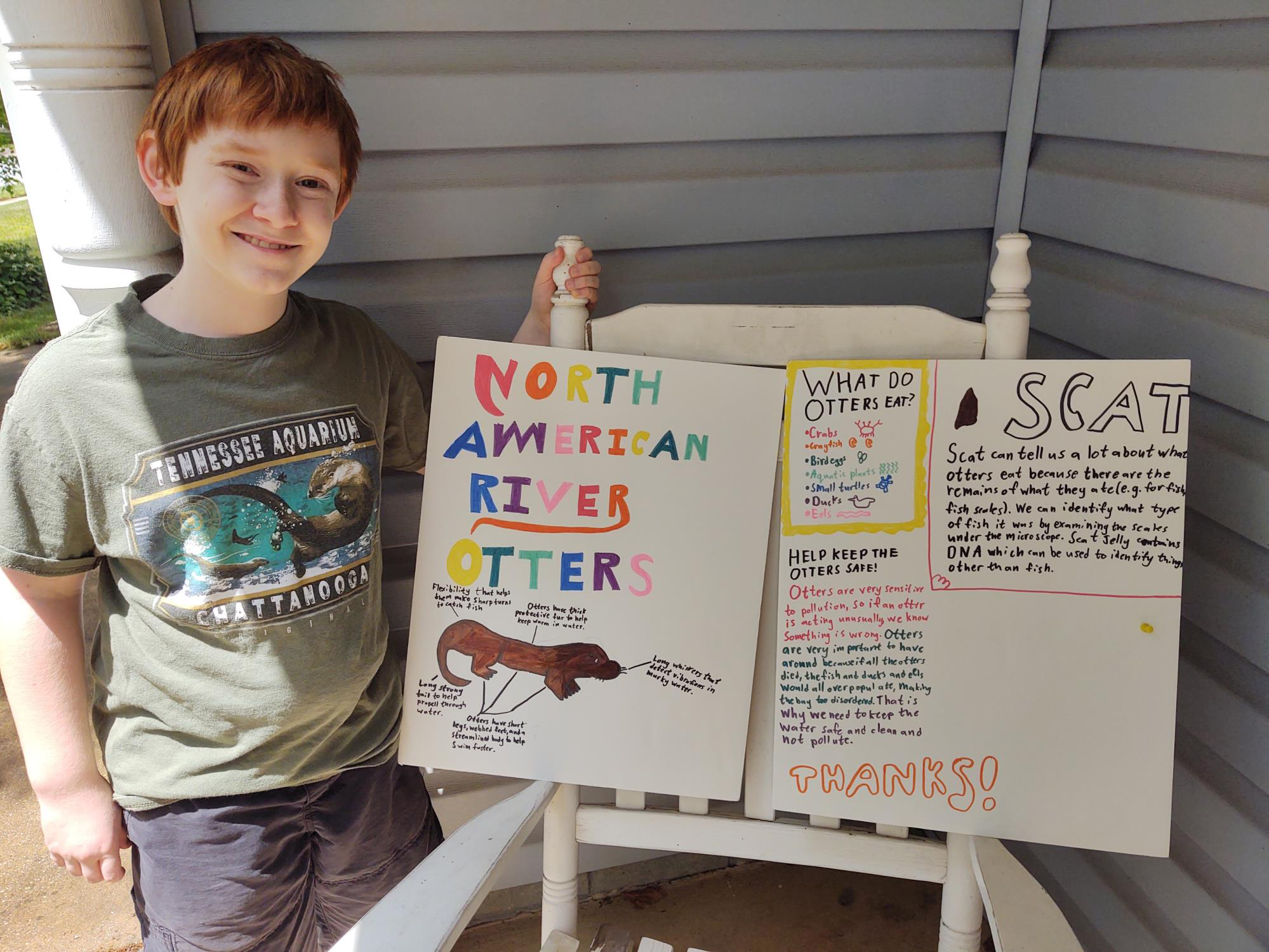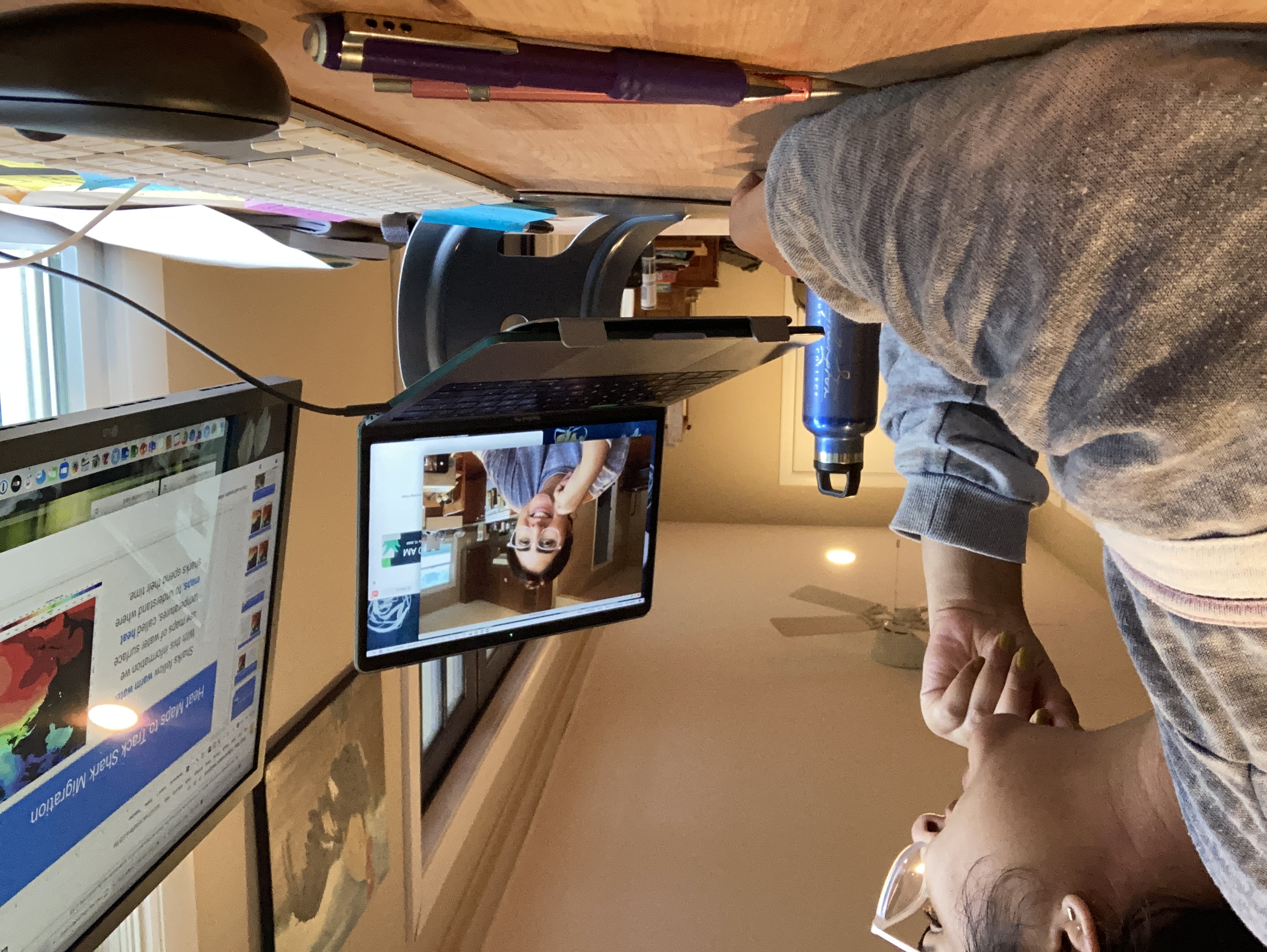by Isabella Eclipse

Charlie Schmidt, a student in SERC’s virtual river otter class, poses with his poster presentation. (Photo courtesy of the Schmidt Family)
In spring, the SERC campus comes alive. Snow thaws, peeper frogs start calling, and troops of schoolchildren descend on campus to get their hands dirty and experience science in the field. For some, this could be the first time they’ve seen the Chesapeake Bay, walked through a forest or spent time in nature.
This year, the pandemic forced schools to close and SERC had to cancel all its spring and summer programs. However, thanks to the efforts of the SERC education team, the pandemic hasn’t stopped science education, just changed it. Karen McDonald, SERC’s education specialist, is working with her staff, interns and a dedicated volunteer team to develop virtual programs that bring SERC science into the homes of eager learners, from elementary students to adults.
During spring 2020, SERC offered a three-day virtual homeschool course on river otters for 4th- through 7th-graders. Students attended class through Zoom and sent in their “homework”—food webs and otter diagrams—using Google Classroom. Encouraged by the success of this short program, the education team developed a four-week course called “The Science of Biodiversity” for middle school students in June. SERC also created a Summer Science Series for the public and several workshops and certificate programs for teachers looking for professional development during the pandemic.

Education intern Samina Soin-Voshell presents an online lesson on shark migration. (Photo courtesy of Samina Soin-Voshell)
This fall, SERC is offering virtual field trips for schools. The team has also organized a hands-on “Science To Go” activity in October, with DNA extraction kits families can pick up at Anne Arundel County Public Libraries or assemble on their own.
Adapting an outdoor curriculum which is inherently hands-on and experiential has been challenging, McDonald acknowledged.
“We’re having to be very creative about how to conduct hands-on science in meaningful ways, virtually,” she said.
One way to engage students is to encourage them to take a break from the computer screen and rediscover nature in their own backyards and neighborhoods.
“I think especially since everyone is home right now, it really gives us an opportunity to connect to a sense of place and the environment around us,” explained science education intern Samina Soin-Voshell.
Soin-Voshell helped lead middle schoolers in the virtual homeschool course through a “bioblitz” survey. The exercise challenged the students to catalog every living species they could find outside in 20 minutes. The students had fun while learning critical science skills, like analyzing data and identifying trends.
Despite the challenges of online learning, McDonald believes science education will ultimately be all the better for it.
“We can reach different audiences, which is exciting,” she said. “Places that we’ve never taken SERC science, we can now go.”
To learn more about SERC’s education programs, visit https://serc.si.edu/education.

